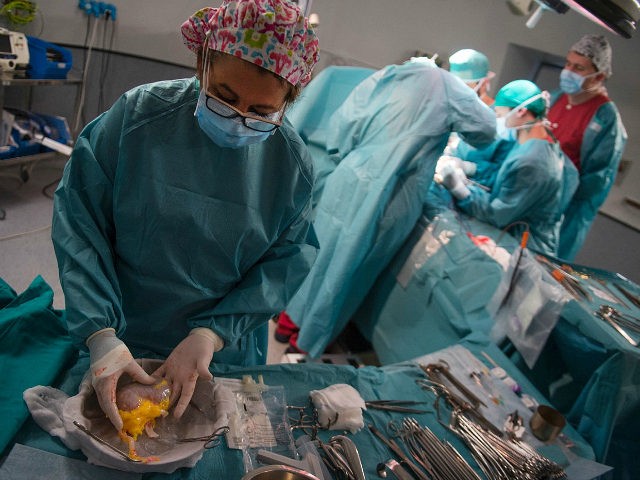Investigators say that transplants from victims of opioid overdose are as safe and effective as those who come from trauma death — and even those who die of natural causes.
Dr. Christine Durand is the author of a study that tracked almost 20,000 organ transplants from opioid overdose donors, between 2000 and 2017. “Patients who received transplants from these donors had excellent outcomes, patient survival and organ function that were similar to cases when donors died due to trauma, and similar or better than cases when the donor died due to medical causes of death like heart attack or stroke,” Dr. Durand said.
The information is particularly relevant in a world where one in every ten deceased organ donors has died from an opioid overdose. Eighteen years ago, that number was closer to one in 100. Durand called it “a relatively recent phenomenon which has occurred as a result of the tragic opioid epidemic currently faced by the United States.”
Of the roughly 120,000 desperately in need of an organ transplant in 2017, only about 10,000 actually received one. Meanwhile, 52,000 opioid overdose deaths were recorded in 2015 alone. The disparity — and opportunity — could help turn tragedy into hope.
Of course, there are many associated risks. Not every overdose victim is otherwise healthy; far from it. Approximately 18 percent had hepatitis and 53 percent were otherwise labeled as “risky” donors. But “risky” is a long way from “dead,” and it seems a choice that many otherwise condemned to perish might be willing to take.
Because of the positive outcomes observed by Durand and her team, she says that they “believe the number of discarded organs from overdose death donors should be lower.” Further, “The current epidemic of deaths from overdose is tragic,” she said. But “it would also be tragic to discard lifesaving organs donated for transplant.” Durand believes that “we have an obligation to optimize the use of all organs donated. The donors, families and patients waiting deserve our best effort to use every ‘gift of life’ we can.”
In the meantime, everyone can help save a life. If you have yet to register as an organ donor, the process is simple, painless, and could mean that someday your life saves many others.

COMMENTS
Please let us know if you're having issues with commenting.